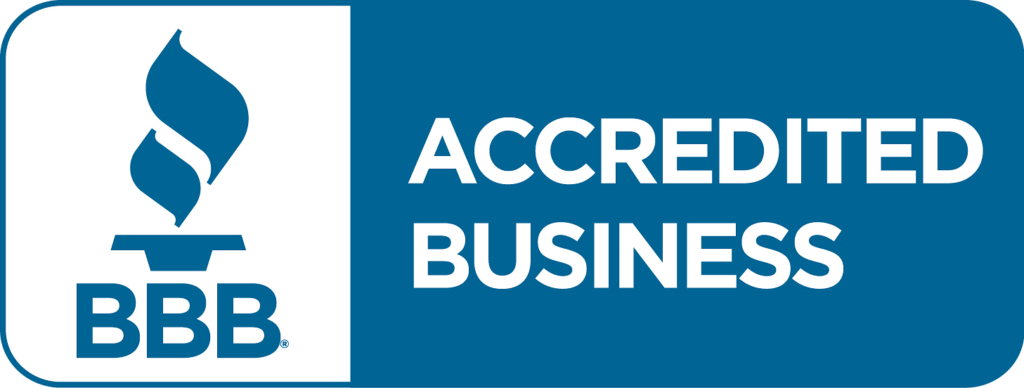In the world of innovation, securing a patent is a critical step for inventors looking to protect their unique ideas and inventions. A patent not only safeguards an inventor’s intellectual property by granting exclusive rights to make, use, or sell the invention for a certain period. However, navigating the patent application process can be complex and daunting. To assist in this process, inventors often work with patent agents, while patent examiners play a crucial role on the other side of the table, evaluating the applications. Understanding the distinct roles, responsibilities, and qualifications of patent agents and patent examiners is essential for any inventor aiming to patent their invention successfully.
Secure Your Plant Patent Today Call Affordable Patent Agency, LLC at (855) 444-1946 Today
Table of Contents
TogglePatent Agents vs. Patent Examiners
What is a Patent Agent?
A patent agent is a professional licensed by the United States Patent and Trademark Office (USPTO) to assist inventors in preparing, filing, and prosecuting patent applications. Unlike patent attorneys, who can also provide legal advice and represent clients in court, patent agents focus exclusively on patent law’s technical and procedural aspects.
Qualifications and Certification
To become a patent agent, one must pass the Patent Bar Examination, a rigorous test administered by the USPTO. This exam assesses the candidate’s knowledge of patent law and ability to apply it in practical scenarios. Candidates must also have a background in science, engineering, or a related technical field, as this expertise is crucial for understanding the inventions they will work on.
Key Responsibilities
Patent agents are responsible for drafting detailed and precise patent applications that clearly describe an invention and its unique features. They conduct patent searches to ensure the invention is novel and has not been previously patented. Additionally, patent agents communicate with the USPTO on behalf of their clients, addressing any issues or rejections that may arise during the examination process. They aim to secure a patent that provides the broadest possible protection for the inventor’s intellectual property.
Benefits of Working with a Patent Agent
Working with a patent agent offers several advantages. First, their technical background allows them to understand complex inventions, making them well-suited to drafting comprehensive patent applications. Their expertise in patent law ensures that the application meets all legal requirements, reducing the risk of rejections or delays. Furthermore, patent agents often charge lower fees than patent attorneys, making them a cost-effective option for inventors.
What is a Patent Examiner?
A patent examiner is a government employee who works for the USPTO. Their primary role is to review patent applications to determine whether an invention meets the legal requirements for patentability. Patent examiners are the gatekeepers of the patent system, ensuring that only genuinely novel and non-obvious inventions receive patent protection.
Qualifications and Training Requirements
Patent examiners, like patent agents, typically have a background in science, engineering, or a related technical field. This technical expertise allows them to understand the inventions they are evaluating. New patent examiners undergo extensive training to familiarize themselves with patent law, USPTO procedures, and the specific technologies they will be working with.
Key Responsibilities
The primary responsibility of a patent examiner is to review patent applications to determine whether the invention is novel, non-obvious, and useful. They conduct prior art searches to identify any existing patents or publications that may be similar to the invention. Based on their findings, they decide whether to approve the application, request modifications, or reject it outright. Patent examiners also interact with patent agents and applicants, providing feedback and guidance on improving the application for potential approval.
How Patent Examiners Interact with Patent Agents and Applicants
Patent examiners and patent agents often work together during the patent application process. After a patent agent submits an application, the patent examiner reviews it and may issue an office action, a formal response that outlines any issues or objections. The patent agent then works with the inventor to address these concerns and resubmit the application. This back-and-forth communication is crucial for refining the application and increasing the chances of approval.
Comparing Patent Agents and Patent Examiners
Differences in Roles and Responsibilities
Patent agents and patent examiners play distinct roles in the patent application process. Patent agents advocate for the inventor, helping to prepare and file the application, while patent examiners evaluate the application on behalf of the USPTO. Patent agents focus on drafting robust applications that clearly define the invention and its patentable features. In contrast, patent examiners scrutinize these applications to ensure that the invention meets the legal standards for patentability.
Differences in Qualifications and Training
Both patent agents and patent examiners typically have a technical background in science or engineering. However, patent agents must pass the Patent Bar Examination to be licensed to practice before the USPTO. Patent examiners, on the other hand, are government employees who receive specialized training in patent law and USPTO procedures after being hired. This training equips them with the knowledge needed to assess the patentability of inventions in their assigned technical field.
Interaction with Inventors: Preventive vs. Evaluative Roles
Patent agents and patent examiners interact with inventors in different ways. Patent agents take a preventive role, helping inventors prepare applications that anticipate potential objections and avoid common pitfalls. They work closely with inventors to understand the invention and craft a patent application that maximizes the chances of approval. Patent examiners, in contrast, take an evaluative role, reviewing the application to ensure that it meets all legal requirements. Their feedback helps refine the application, but their primary responsibility is to protect the integrity of the patent system by rejecting applications that do not meet the necessary standards.
Cost Considerations
Hiring a patent agent typically involves costs ranging from $8,000 to $15,000, depending on the invention’s complexity and the application’s scope. These costs cover the drafting and filing of the application, as well as any necessary responses to USPTO office actions. Working with a patent examiner does not involve direct costs, as they are government employees paid by the USPTO. However, the quality of the initial application, often prepared by a patent agent, can significantly impact the overall cost and duration of the patent application process.

When to Use a Patent Agent
Situations Where a Patent Agent’s Expertise is Most Beneficial
Patent agents are invaluable in several scenarios. A patent agent’s expertise is crucial if you have a complex invention that requires a deep understanding of technical and legal issues. They can help ensure your application is thorough, clear, and strategically crafted to provide broad protection. Additionally, if you are new to the patent process, a patent agent can guide you through the various steps, from conducting a patent search to responding to USPTO office actions. For inventors unfamiliar with the legal nuances of patent law, a patent agent can provide the necessary support to navigate the process effectively.
Tips for Selecting a Patent Agent
When selecting a patent agent, consider their experience in your specific technology field. An agent with a background in your innovation area will better understand your invention’s nuances and be more equipped to draft a robust application. Review their track record of successful patent applications and ask for references from past clients. Additionally, ensure that the patent agent is registered with the USPTO and clearly understands the latest developments in patent law. Communication is also key; choose a responsive patent agent who will collaborate closely with you throughout the application process.
Understanding the Role of a Patent Examiner in Your Application
What to Expect During the Examination Process
Once your patent application is submitted, it will be assigned to a patent examiner at the USPTO. The examiner will review the application to determine whether the invention is novel, non-obvious, and useful. They will conduct a prior art search to identify any existing patents or publications that may be similar to your invention. If the examiner finds any issues, they will issue an office action outlining their concerns. You and your patent agent will then have the opportunity to respond by amending the application or providing additional arguments to address the examiner’s objections. This process may involve multiple rounds of communication before a final decision is made.

Common Challenges and How to Address Them
One common challenge during the examination process is overcoming rejections based on prior art. Patent examiners may find existing patents or publications that they believe are similar to your invention. To address these rejections, your patent agent can argue that your invention is sufficiently different from the prior art or amend the claims to clarify the unique aspects of your invention. Another challenge is ensuring that your application is clear and complete; vague or incomplete applications are more likely to face objections. Working with a skilled patent agent can help you anticipate and address these challenges, increasing the likelihood of a successful patent grant.
Frequently Asked Questions
How is a patent agent different from a patent examiner?
A patent agent assists inventors by preparing, filing, and prosecuting patent applications before the USPTO, advocating on behalf of the client. They are certified by passing the Patent Bar Exam and possess a technical background. In contrast, a patent examiner works for the USPTO, reviewing patent applications to ensure they meet legal standards like novelty and utility. Examiners assess prior art and decide whether to approve or reject patent applications. While patent agents represent inventors, patent examiners evaluate applications impartially on behalf of the government.
What qualifications do patent agents need?
Patent agents must pass the USPTO’s Patent Bar Exam and have a strong technical or scientific background, usually with a degree in a relevant field.
When should I hire a patent agent?
It’s best to hire a patent agent early in the invention process, particularly when you need help with patent searches, drafting the application, or navigating USPTO procedures.
Successful Patents in Dallas, Texas
Understanding the distinct roles of patent agents and patent examiners is crucial for inventors navigating the patent application process. Patent agents serve as advocates, helping inventors prepare strong applications and guiding them through the complexities of patent law. Patent examiners, on the other hand, evaluate these applications to ensure that only novel, non-obvious, and useful inventions receive patent protection. By working with a qualified patent agent and understanding the examination process, inventors can increase their chances of securing a patent that effectively protects their innovation. In a world where intellectual property is valuable, having the right support and knowledge is key to safeguarding your ideas and bringing them to market successfully.
At Affordable Patent Agency, LLC, we specialize in providing cost-effective patent filing services tailored to inventors seeking successful patents. Our guidance guides the intricate patenting process, ensuring comprehensive protection for your plant discoveries while adhering to patent regulations and requirements.
Reach out to our professional patent agency today to safeguard your innovations. Affordable Patent Agency, LLC stands ready to partner with you to secure successful patents and protect your agricultural inventions.
Affordable Patent Agency, LLC
4131 N. Central Expressway Suite 900, Dallas, TX 75204
(855) 444-1946




